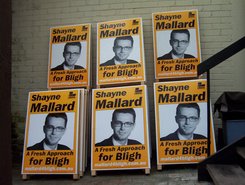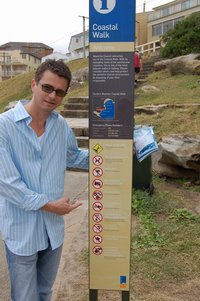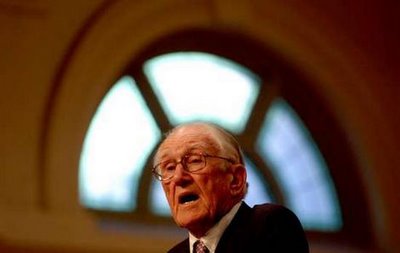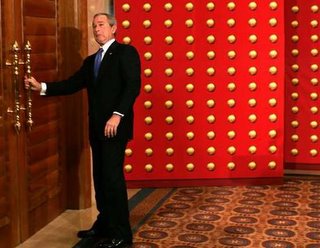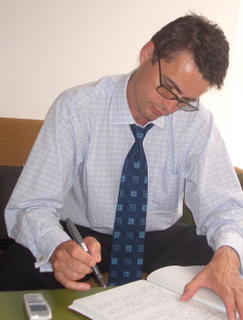A day at various business functions and meetings in Sydney has left me with no doubt that the Labor Iemma/Carr government has lost the plot by going ahead with the desalination project to meet Sydney's water crisis. The announcement this morning (see SMH) was a spin doctors attempt to blunt the sharp edges of PPP's following the Cross City Tunnel fiasco. With a $1 billion buy back price tag on the dud tunnel and penalties for establishing competing services - including public transport corridors, the public and business sectors are rightly distrusting of the Labor government's ability to deliver a cost effective PPP or hybrid PPP as we have been presented. Whilst the Labor government seems to have removed the excessive annual payments to the private sector that Malcolm Turnbull MP referred to in his speech on the Sustainable Cities report (read it on my blog here), it now suddenly requires $1.3 billion of taxpayers capital investment! That's $60 on every household water bill each year and only to meet about 10% of Sydney's water needs. Water recycling and storm water harvesting are the only way ahead. But they required planning at least 5 years ago and it's all too late for Morris Iemma who needs a quick fix to win the next election and who has been handed the poison chalice by Carr. For as the great expanse of Sydney's traditional green Kikuyu and couch lawns whither away and the sound of summer sprinklers become stories passed on by grandfathers, the reality of Labor's poor planning is biting home. And no razzle dazzle desalination plant is going to deflect the growing suburban anger. And this from a government who lectures the Howard team on not signing Kyoto.... Untapped resource ... stormwater swirls from an ocean pipe at Dover Heights. Soon ocean water will be turned into drinking water further down the coast.Photo: Peter Rae SMH on line
Untapped resource ... stormwater swirls from an ocean pipe at Dover Heights. Soon ocean water will be turned into drinking water further down the coast.Photo: Peter Rae SMH on line
Sydney Morning Herald's Editorial Column
Taking the easy option
November 24, 2005
The heavens are mocking Sydney's proposed desalination plant. As the Premier, Morris Iemma, announced the $1.3 billion project, heavy showers were sweeping past his offices in Governor Macquarie Tower. It was a timely reminder that historically Sydney has not been short of rain. The city is short of water because it wastes it. Sydney needs a long-term plan for recycling waste water and storm water. Desalination remains the quick fix; finding water to waste instead of saving the water we have.
The desalination plant is another hand-me-down from former premier Bob Carr that Mr Iemma has uncritically embraced as the easy thing to do. It puts Sydney in the absurd position of spending $1.3 billion on a desalination plant it must pray it will never need. It is no surprise that it will be financed by the State Government; no private organisation would take on such a ludicrous endeavour. And the question must be whether the public should take it on either. After becoming Premier, Mr Iemma should have cast fresh eyes over such a bleak financial prospect. What could $1.3 billion otherwise provide in water-saving incentives to households and industry; or new infrastructure; or wholesale recycling of the water Sydney dumps in the ocean? We do not know the options because the Government hasn't bothered to do the sums. So much for fiscal responsibility from the man who is not only Premier, but Treasurer.
Sydney's modest consolation is that the plant at Kurnell might have cost more. The Government has opted for a relatively small plant producing 125 megalitres of drinking water a day, enough to supply 350,000 people, instead of up to $2.5 billion for a plant to supply a third of Sydney's needs. Though government-owned, the plant will be built and operated by private industry and the hapless water users will foot the bill. The Government says that will be about $1.20 a week each for the 1.6 million households served by Sydney Water. Read more.
Related coverage
Buckets of money down the drain
Part-time plant a waste
This time take a close look at the fine print
By Anne Davies, Wendy Frew and Matthew MooreNovember 24, 2005
Sydney's planned desalination plant will be smaller than expected and funded by taxpayers not the private sector, after the NSW Government decided it needed more flexibility on operating the energy-intensive plant.
The Premier, Morris Iemma, announced yesterday the Government would commission the smallest plant on its drawing board - one capable of producing 125 megalitres a day - at a cost of up to $1.3 billion.
Sydney Water will look at increasing water prices to help pay for it - an extra $1.20 a week on the average bill, Mr Iemma said.
"This will make us less reliant on rain for our water supply," he said. "It will also be our insurance policy, when the next drought occurs or if this drought persists."
The plant at Kurnell will still be built by the private sector and operated and maintained by one of the water companies that tendered for the project.
The Utilities Minister, Carl Scully, said a 125-megalitre plant would meet 9 per cent of Sydney's daily needs. However, the Government has retained the option of building a plant capable of producing 500 megalitres a day.
Mr Scully said the estimated cost of the 500-megalitre plant was $2.5 billion, not $2 billion as previously stated.
The Government says the decision to keep the plant gives it much-needed flexibility. "When the dam levels are full obviously we won't operate the plant," Mr Scully said.
He said the Government would have been obliged to compensate a private operator if the plant was not in use.
However, some water experts suggest turning a reverse osmosis desalination plant on and off might not be straightforward. "It can be done, but the membranes have to be 'pickled' with a preserving solution," said Greg Leslie, associate professor at the University of NSW's centre for membrane science. Read more.




